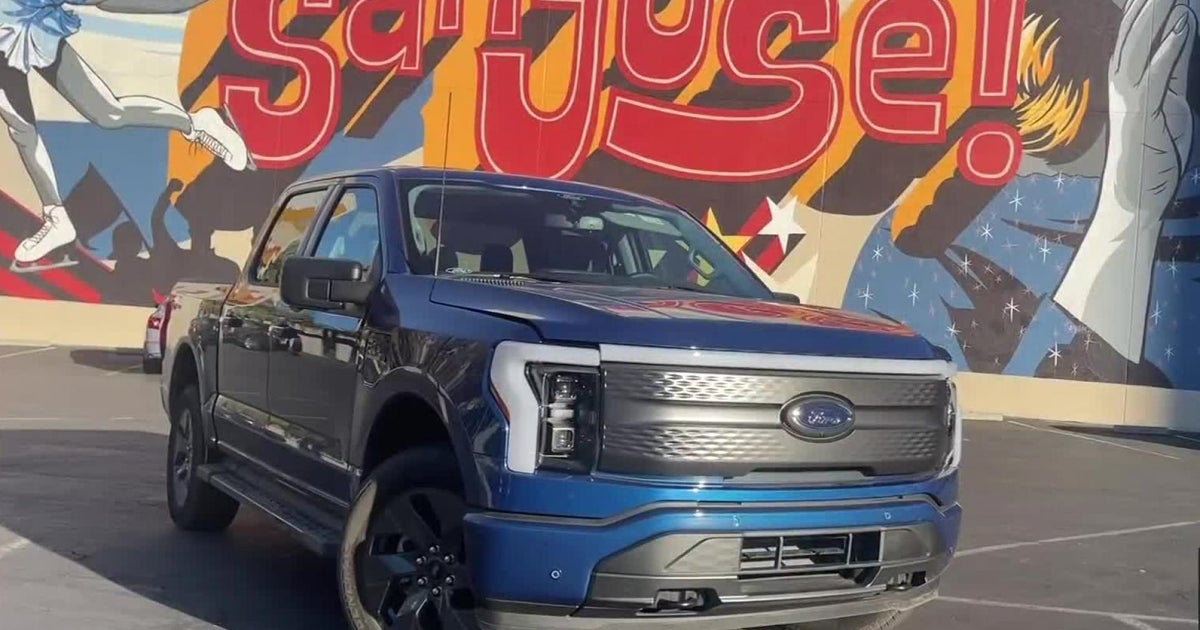Ford Motor will pause production on its F-150 Lightning until at least February 24 because the electric pickup truck has a battery problem.
The Michigan automaker spotted a potential battery issue this week during a pre-delivery quality inspection and started investigating the cause. Ford said it’s not aware of battery issues impacting vehicles already out on the road.
“We believe we have identified the root cause of this issue,” Ford spokeswoman Emma Bergg told CBS MoneyWatch on Wednesday. “By the end of next week, we expect to conclude our investigation and apply what we learn to the truck’s battery production process.”
Applying that process “could take a few weeks,” Bergg said.
“We will continue holding already-produced vehicles while we work through engineering and process updates,” she said.
Ford began selling its F-150 Lightning last year. The production pause threatens Ford’s plan to deliver 600,000 Lightning trucks in 2023.
Since their release last May, Ford has sold 15,617 of the electric trucks, according to the most recent company data available. The company sold 2,436 of them in October, the most ever sold in one month.
Soaring demand for EVs
Ford is betting big on the F-150 Lightning, investing millions of dollars on a new facility for a vehicle that’s already been named the 2023 MotorTrend Truck of the Year.
When company officials first announced the truck in 2021, demand quickly soared as the pre-order list surpassed 100,000 within three weeks. Workers are building the vehicle in a new plant in Dearborn, Michigan.
Ford’s pause comes as interest and demand for electric vehicles continue to rise in the U.S. A survey from motor club AAA found that about a quarter of Americans say they want to get an electric vehicle as their next car purchase. Research from Recurrent, a car industry analysis company, found that interest in buying an electric vehicle has soared 70% since last January.
Ford raised the price of the F-150 Lightning in October as it sought to offset rising manufacturing costs. Other automakers also hiked the cost of their EV lines — including Rivian, GM and Tesla — amid surging metal prices and higher costs for components like lithium, which is used to make batteries.
Ford earlier this month reported $1.3 billion in profit for the fourth quarter of 2022, down roughly 89% from the same period last year. CEO Jim Farley said in an earnings call this month that he’s frustrated with the 2022 performance “because the year could have been so much more for us at Ford.”
Ford’s stock price fell nearly 1% on Wednesday to about $12.80 a share, its second day of declines.
















Discussion about this post